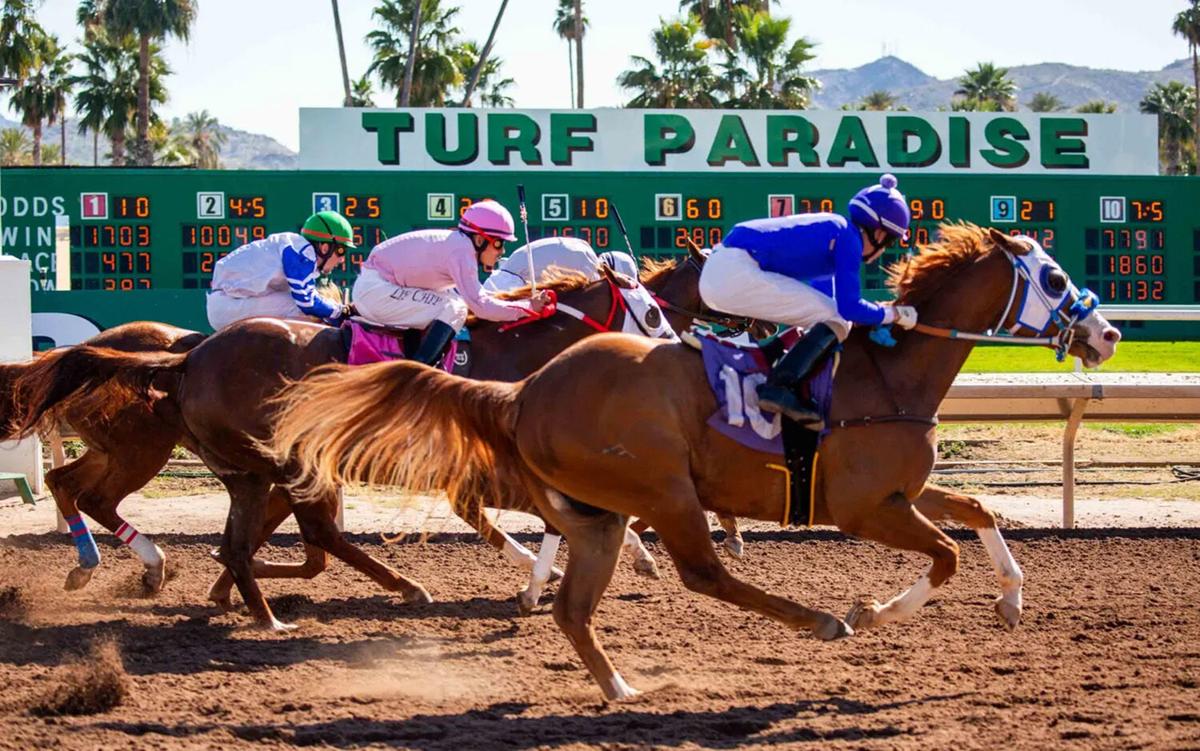PHOENIX — State lawmakers are on the cusp of once again being found to have illegally given away public funds.
In new court filings, Democratic Attorney General Kris Mayes said she agrees with challengers that a $1 million appropriation to Phoenix racetrack Turf Paradise in the new state budget violates the Gift Clause of the ÃÛÁÄÖ±²¥ Constitution.
Mayes’ statement paves the way for Maricopa County Superior Court Judge Michael Herrod to sign an order on his desk declaring the funding illegal and barring the ÃÛÁÄÖ±²¥ Department of Racing from distributing the cash.
In exchange, Howard Mechanic and Ralph Hess, the plaintiffs in the case, will drop their objection to lawmakers giving another $1 million to the ÃÛÁÄÖ±²¥ Thoroughbred Breeders Association to be used to promote racing and provide more money to give to winners of horse racing in the state.
People are also reading…
If the names of the challengers seem familiar, it’s because Mechanic and Hess were also the plaintiffs in a lawsuit over state funds given to the nonprofit foundation that runs the Prescott Frontier Days rodeo. In that case, Maricopa County Superior Court Judge Scott Blaney declared just months ago that the Legislature violated the Gift Clause by earmarking $15.3 million to the foundation.
That issue has since been resolved by lawmakers rewriting the law to give the money directly to the city of Prescott to make improvements to the city-owned rodeo grounds.
But that may not be an option to fix the problem in this case. That’s because, unlike the rodeo grounds, Turf Paradise is privately owned.
It was that fact that caused Prescott residents Mechanic and Hess — Hess is a retired Yavapai County Superior Court judge — to sue over the $1 million appropriation to Turf Paradise, and Mayes to concede the funding can’t legally be done.
Such spending must benefit taxpayers
The Gift Clause makes it illegal for the state to “make any donation or grant, by subsidy or otherwise, to any individual, association or corporation.’’
That does not bar the state from giving money to private entities. But it does require the gift to serve a public purpose and include adequate “consideration,’’ meaning taxpayers get some benefit from the expenditure.
In filing suit last month, Mechanic and Hess said neither appropriation meets the test because they don’t require either Turf Paradise or the ÃÛÁÄÖ±²¥ Thoroughbred Breeders Association to perform any public function in exchange for the money. The pair also said nothing in the appropriation gives either the state or the ÃÛÁÄÖ±²¥ Department of Gaming any control or supervision over how the money is used.
State Sen. John Kavanagh, who supported putting the money into the budget for the fiscal year that began July 1, disagreed. He said there is a public purpose.
“I think there’s an economic benefit to the state just in terms of revenue that tourists bring in, not to mention providing recreational amenity for residents and tourists alike,’’ he told Capitol Media Services when the lawsuit was filed. “We do it all the time.’’
That’s not good enough, said Danny Adelman of the ÃÛÁÄÖ±²¥ Center for Law in the Public Interest, who filed suit on behalf of Hess and Mechanic.
He told the judge the question of whether there is the legally required “consideration’’ is based on “direct benefits that are bargained for as part of the contracting party’s promised performance.’’ Adelman said it does not include “anticipated indirect benefits.’’
This isn’t the first time the state has given public funds for horse racing. Adelman said lawmakers set aside $10 million in both 2021 and 2022, $6 million in 2023 and $5.5 million in 2024.
“The state has been giving away similar gifts for many years,’’ Mechanic told Capitol Media Services. He also said this agreement, coupled with the ruling about the funds for Prescott Frontier Days, should be a reminder about what isn’t allowed.
“I hope both the Legislature and the various state departments will now stop such expenditures,’’ Mechanic said. “The most effective way to avoid future gifts is for the state to develop a regular procedure to analyze the public costs and public benefits of most proposed expenditures intended to go to private parties.’’
Mayes would not comment on the specific decision to settle the case. But her press aide, Richie Taylor, said Wednesday it is in line with her views on the issue.
“Attorney General Mayes believes lawmakers need to be more mindful of the Gift Clause when making appropriations,’’ he said. “The Gift Clause requires that public dollars be spent for true public purposes. Playing fast and loose with that standard risks litigation and wastes taxpayer money.’’
Mayes targeted previous gift
This isn’t the first time Mayes has said a line needs to be drawn around what is and isn’t a proper use of public funds.
Last year, she targeted money spent by the publicly funded ÃÛÁÄÖ±²¥ Commerce Authority to wine and dine corporate CEOs who had come to ÃÛÁÄÖ±²¥ for sporting events.
Mayes said the decision to entertain top executives could be considered to have a public purpose. She said it could be seen as part of the organization’s responsibility to market the state and get companies to expand or relocate here.
But Mayes said the amount of money spent on “CEO Forums’’ — $2.4 million at the 2023 Super Bowl and Waste Management Phoenix Open over the prior six years — violated the Gift Clause.
“They give valuable benefits to a limited class of private persons without receiving any legally cognizable benefit in return,’’ she said.
The Commerce Authority got the message. It agreed to use mostly private funds at future events.
Get your morning recap of today's local news and read the full stories here: tucne.ws/morning
Howard Fischer is a veteran journalist who has been reporting since 1970 and covering state politics and the Legislature since 1982. Follow him on X, and Threads at @azcapmedia or email azcapmedia@gmail.com.










